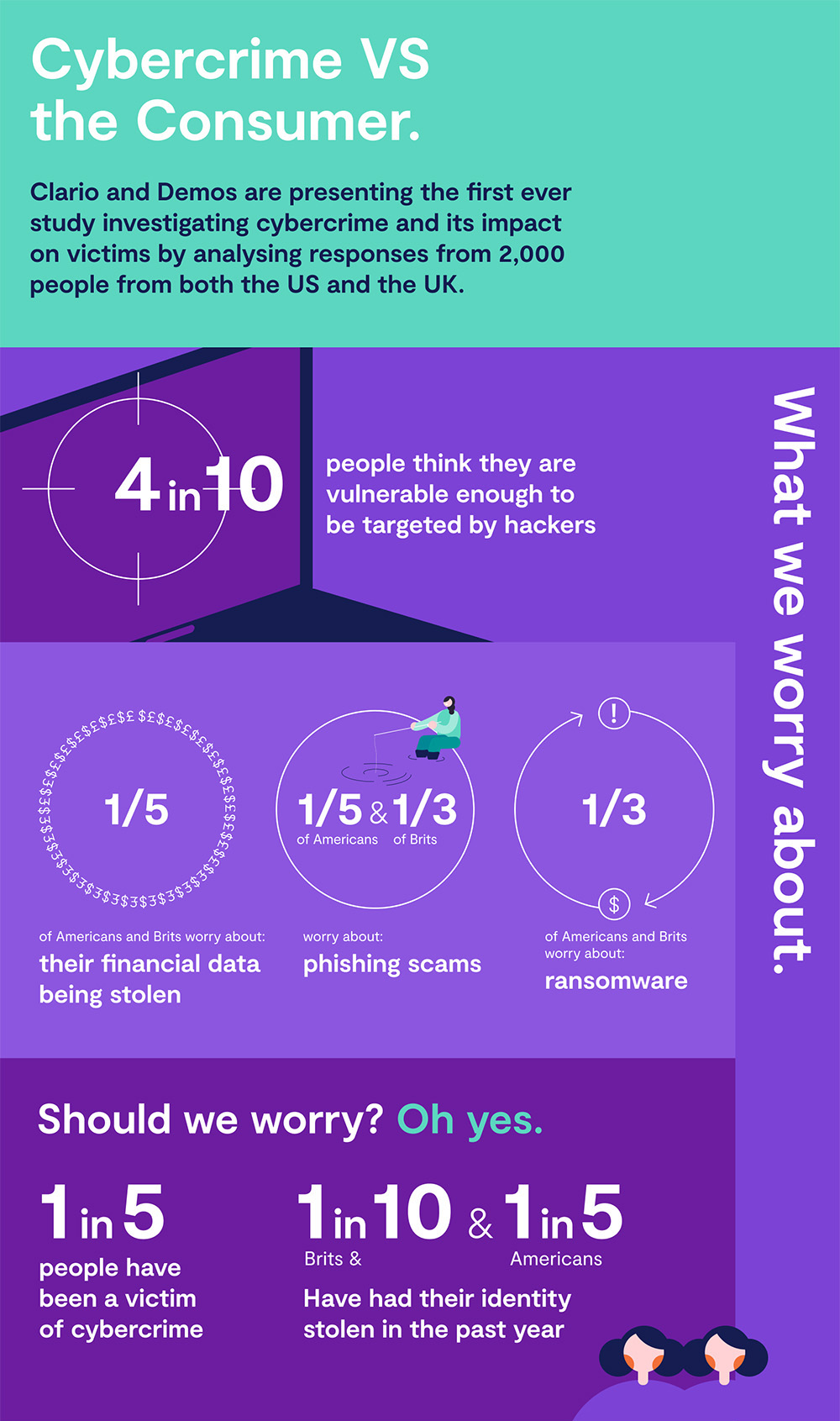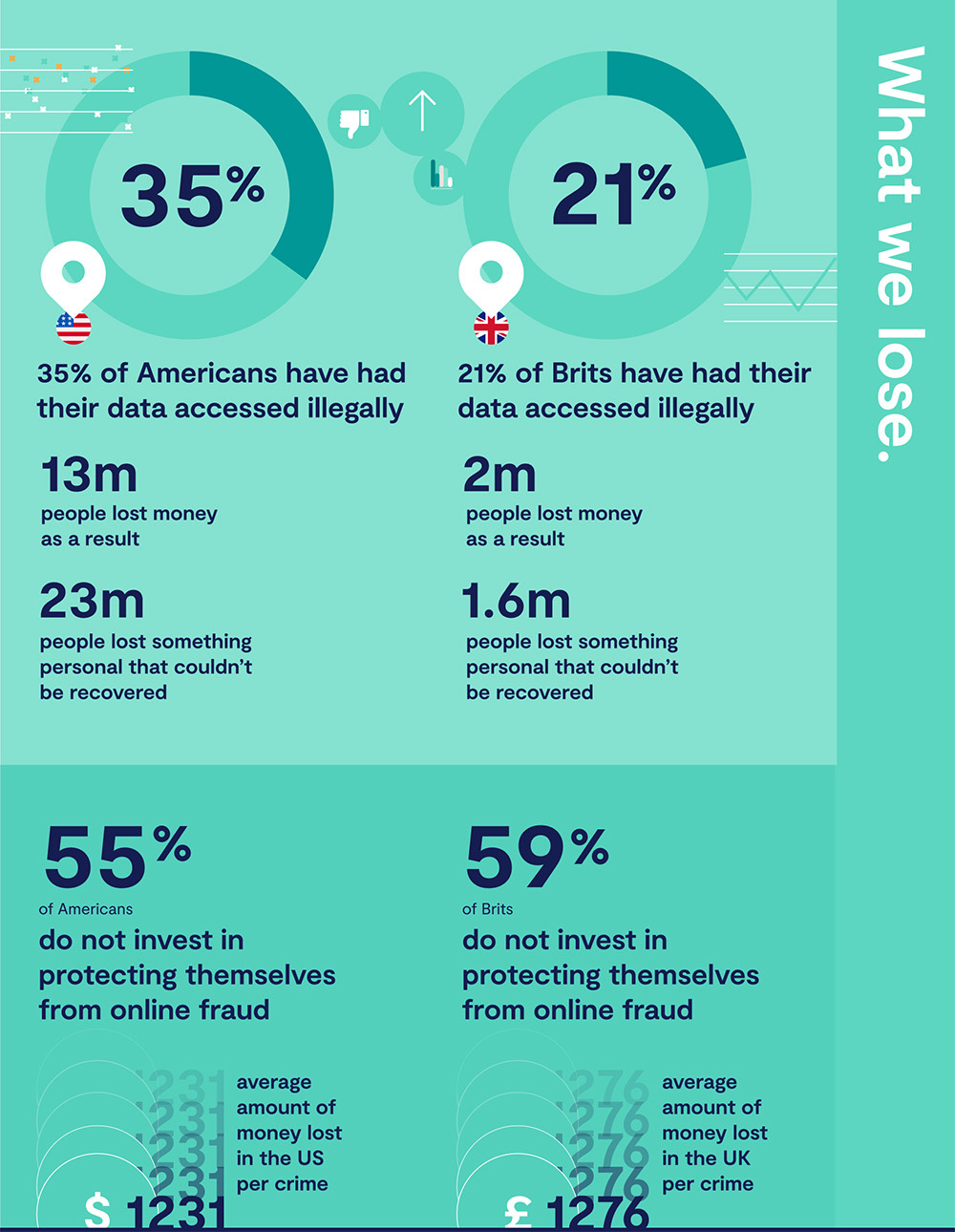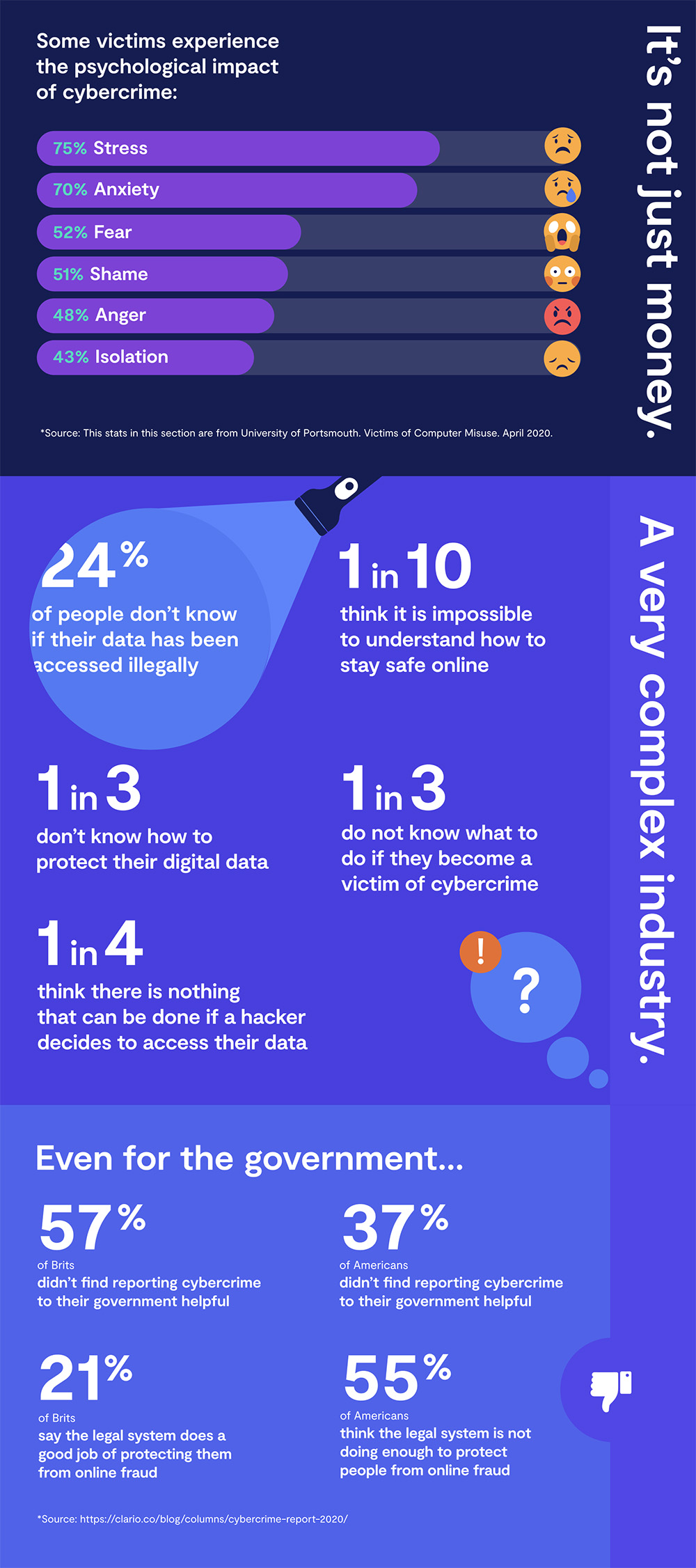A recently released report from Clario and Demos shows that people in the US may be surrendering to cybercriminals and lack confidence in the Government’s ability to step in and provide police forces with the skills and resources required to pursue perpetrators.
The report, The Great Cyber Surrender, reveals that 55% of Americans believe the government is not doing enough to protect them from online fraud and nearly half (49%) don’t think the government is currently able to protect people very much or at all from these online threats. By contrast, 61% percent of Americans believe that companies can do a fair amount or a great deal to protect people.
The study also found most people in the US aren’t turning to the government for help when they are a victim of cybercrime. A majority (60%) did not get in touch with a government organization after being a victim of online fraud and, of the 40% that did reach out a government organization for support, more than a third (37%) say the government either wasn’t able to do much or they didn’t receive any help at all.
The findings also show a lack of trust in the legal system to help, with just 26% of Americans saying the legal system does a good job of protecting them from online fraud. These feelings may be justified when looking at the numbers. In 2019, the FBI’s Internet Crime Complaint Center (IC3) received 467,361 complaints, an average of nearly 1,300 every day, but less than one percent of the cyber incidents that occur annually in the United States result in an arrest, according to external data cited in the report.
Commissioned by Clario, a digital privacy and security company, and conducted by Demos, Britain’s leading cross-party think-tank, this comprehensive report investigates cybercrime, its impact on victims, cyber policy and digital policing by looking at responses from 2,000 people each from the US and the UK respectively. The report also comprises recommendations that the US and UK Government must implement to turn the tide on this growing issue by taking public experiences, behaviors and attitudes regarding cybersecurity and cybercrime into account.
The report shines the light on how cybercrime victims are left dealing with feelings of powerlessness, violation and shame with no systematic attempt to combat cyber fraud at scale by government. Lack of understanding and action from the authorities has led victims being unsure of how to report these crimes. The study found more than one-third (35%) of Americans, which would equate to 115 million people, have been a victim of cybercrime and 19% admit they’ve had their data accessed illegally in the past year. Of those who are victims, 20% of Americans said they lost something personal or of sentimental value that couldn’t be recovered and 11% lost money.
Yet, despite the prevalence of cybercrime, 34% of Americans say they aren’t confident they would even know what to do if they were a victim of online fraud and 35% admit they don’t understand how to protect their data online.
Speaking about the report findings, Scarlet Jeffers, VP of Experience, Clario said: “Unfortunately, the findings from The Great Cyber Surrender report show that people are not confident in government’s ability to respond when it comes to cybersecurity protections. Cyber policy and digital policing in both the US and the UK are woefully inadequate, leaving victims emotionally robbed and out of pocket with no support from those in place to protect them.”
“Despite cybercrime being a widely spread issue, most people do not know how to protect their digital identities which eventually has a massive impact on their real lives. Clearly, both the US and UK governments aren’t doing enough to implement policies that protect consumers and people have lost faith in these institutions to protect them.”
Key recommendations from The Great Cyber Surrender report includes:
- Establish and promote a National Reporting Hotline for fraud and cybercrime, with a simple three-digit number, e.g. ‘119 for Cybercrime.’
- Establish a National Fraud Taskforce, staffed with specialist investigators, with responsibility for investigating cybercrime cases.
- Legally oblige banks to pass anonymized information to the new National Reporting Hotline, whenever their customers are victimized by cybercrime.
- Establish a legal duty that, whenever a data breach occurs, businesses must provide customers with timely, step-by-step guidance on how to protect themselves.
- Mandate basic cybersecurity education within schools.
Clario and Demos conducted a comprehensive evidence review, looking at academic and grey literature to explore what others see as the key problems in this field. The report looks at two nationally representative polls of 2,000 people each from the US and UK, to understand public experiences, behaviors and attitudes regarding cybersecurity and cybercrime as well as the case studies of 20 victims of cybercrime, drawn from a diverse set of demographic backgrounds across the UK and US, who shared their personal stories of how they became victims and the emotional impact of their experiences. Download The Great Cyber Surrender here.








